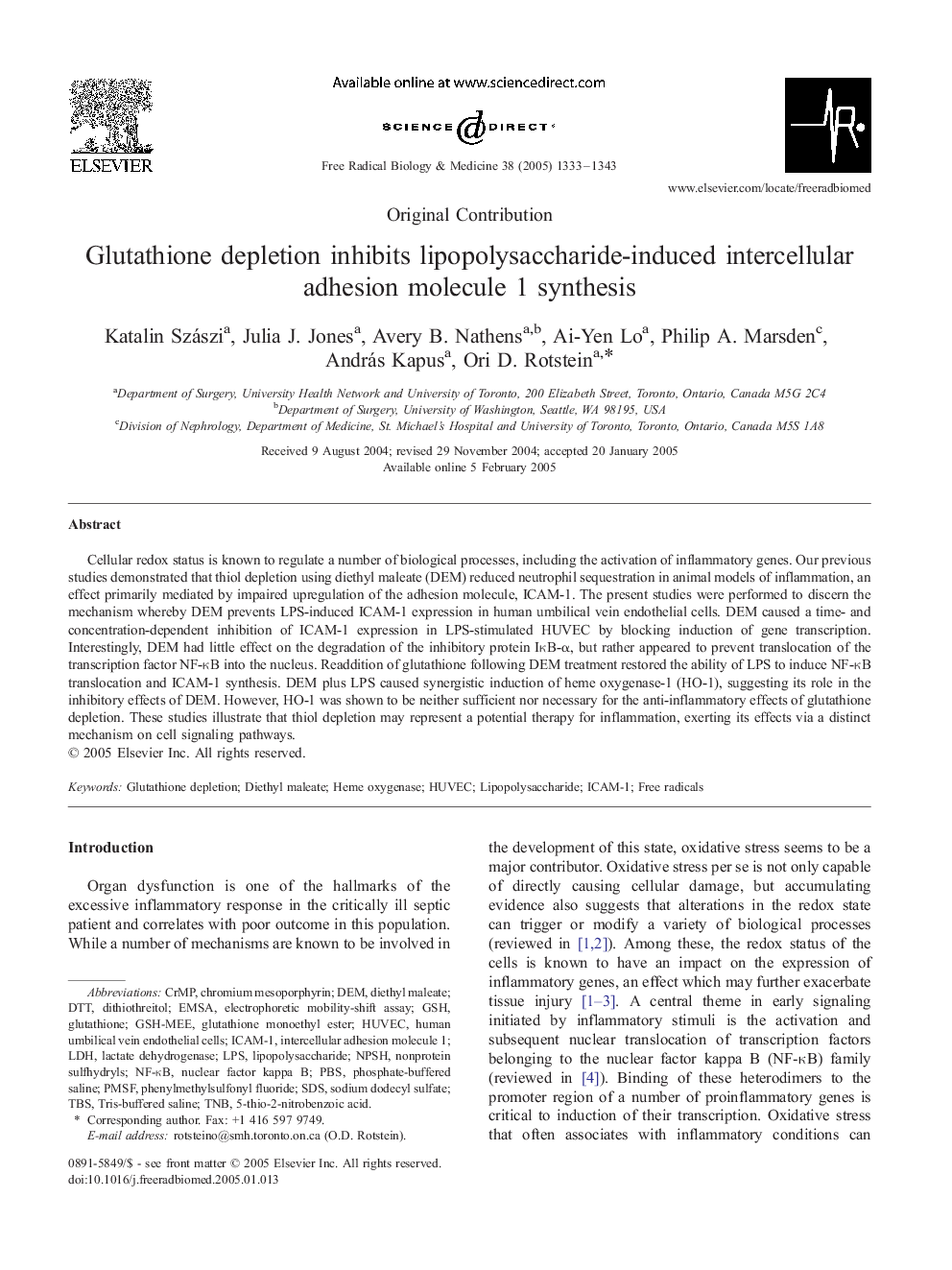| Article ID | Journal | Published Year | Pages | File Type |
|---|---|---|---|---|
| 10739790 | Free Radical Biology and Medicine | 2005 | 11 Pages |
Abstract
Cellular redox status is known to regulate a number of biological processes, including the activation of inflammatory genes. Our previous studies demonstrated that thiol depletion using diethyl maleate (DEM) reduced neutrophil sequestration in animal models of inflammation, an effect primarily mediated by impaired upregulation of the adhesion molecule, ICAM-1. The present studies were performed to discern the mechanism whereby DEM prevents LPS-induced ICAM-1 expression in human umbilical vein endothelial cells. DEM caused a time- and concentration-dependent inhibition of ICAM-1 expression in LPS-stimulated HUVEC by blocking induction of gene transcription. Interestingly, DEM had little effect on the degradation of the inhibitory protein IκB-α, but rather appeared to prevent translocation of the transcription factor NF-κB into the nucleus. Readdition of glutathione following DEM treatment restored the ability of LPS to induce NF-κB translocation and ICAM-1 synthesis. DEM plus LPS caused synergistic induction of heme oxygenase-1 (HO-1), suggesting its role in the inhibitory effects of DEM. However, HO-1 was shown to be neither sufficient nor necessary for the anti-inflammatory effects of glutathione depletion. These studies illustrate that thiol depletion may represent a potential therapy for inflammation, exerting its effects via a distinct mechanism on cell signaling pathways.
Keywords
HUVECEMSAGSH-MEEDemNPSHTNBCRMPPMSFNF-κBICAM-1TBSGSHPBSDTTLPSSDS5-thio-2-nitrobenzoic acidelectrophoretic mobility-shift assayGlutathione depletionTris-buffered salinediethyl maleatedithiothreitolFree radicalssodium dodecyl sulfateHuman umbilical vein endothelial cellsnuclear factor kappa Bphenylmethylsulfonyl fluoridelactate dehydrogenaseLDHlipopolysaccharidePhosphate-buffered salineIntercellular adhesion molecule 1heme oxygenaseGlutathioneGlutathione monoethyl ester
Related Topics
Life Sciences
Biochemistry, Genetics and Molecular Biology
Ageing
Authors
Katalin Szászi, Julia J. Jones, Avery B. Nathens, Ai-Yen Lo, Philip A. Marsden, András Kapus, Ori D. Rotstein,
